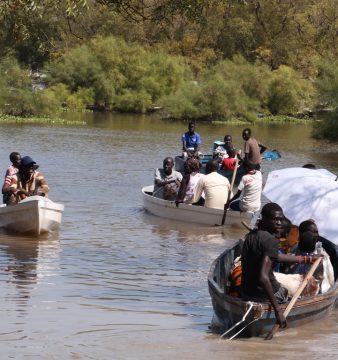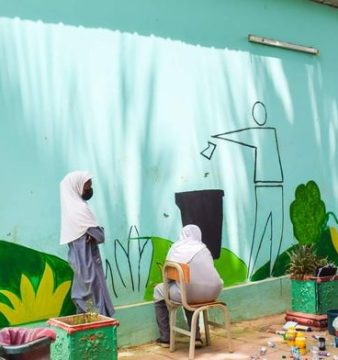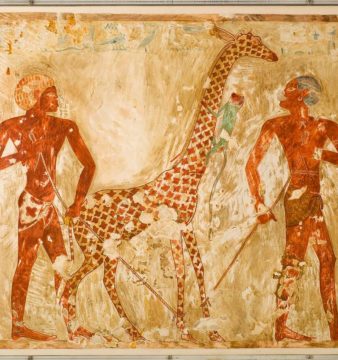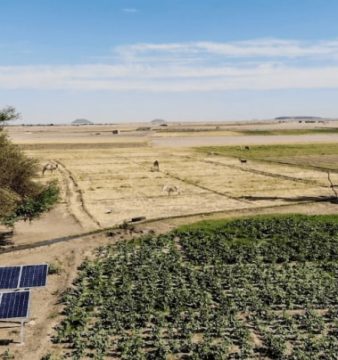MNCEC: The First Environmental Culture Centre in Sudan
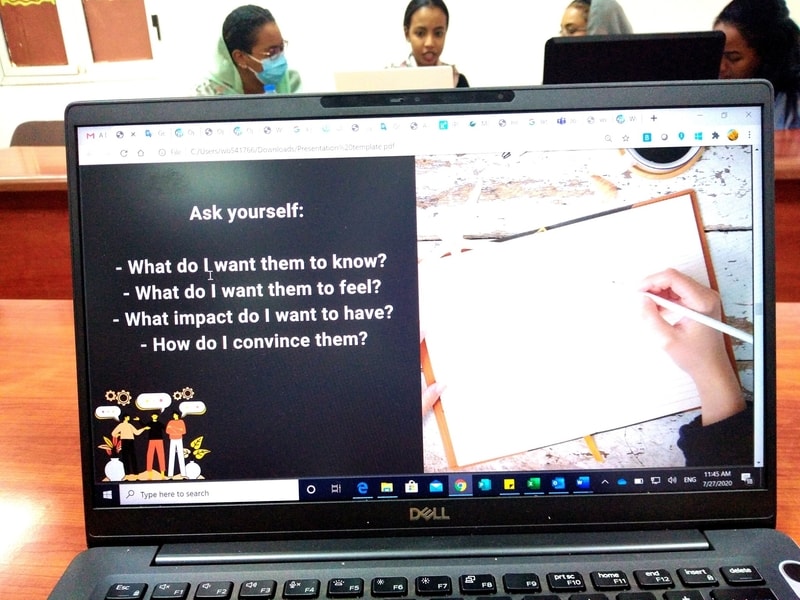
Throughout human history, the notion of culture links with literature, poetry, and art. However, culture is more than that. It’s also about social behaviours, knowledge and understanding – what we learn by socialisation. There is culture in religion, food, greetings, language, marriage, clothing, philosophy, politics, and even the environment.
According to the General Multilingual Environmental Thesaurus (GEMET), environmental culture is “learned behaviours, attitudes, practices and knowledge that a society has with respect to maintaining or protecting its natural resources, the ecosystem and all other external conditions affecting human life”.
Striving to raise public awareness on environmental issues and establish environmental culture in Sudan is the Mutasim Nimir Centre for Environmental Culture (MNCEC), the first environmental culture centre in Sudan.
500 Words Magazine interviews Razan Mutasim, one of the co-founders of MNCEC. She received BSc and MSc degrees in Environmental Science from the University of Khartoum and continued her higher education in Germany and the UK. Mutasim holds an MPhil in Conservation Leadership from Cambridge University. In addition, she volunteered with the Sudanese Environment Conservation Society (SECS) for several years in a wide range of activities. Mutasim talks to us about MNCEC, environment and culture, and how the two can converge.
Tell us more about MNCEC, incorporation and the idea?
MNCEC was founded in 2018. The idea began when one of the Sudanese forerunners in the environmental sphere, Dr Mutasim Bashir Nimir passed away in 2017. The centre’s initiative came from Dr Nimir’s friends and colleagues to commemorate and continue his contributions to environmental work.
MNCEC aims to spread environmental culture in Sudan through basic environmental knowledge. At MNCEC, the environment is a fundamental part of the culture. We pursue the relationship between culture and environment using practical methods to achieve our objectives to make our country better.

The term ‘environmental culture’ is uncommon. How would you define it?
Yes, environmental culture as a term is not used. As a concept, it has existed since time immemorial. Environmental culture as a concept refers to all the knowledge, beliefs, practices, behaviours and attitudes of societies in regards to their relationship and interaction with the environment.
The centre is eager to pursue this linkage because the concept of environment exists within societies, and every single one of us has a relationship and certain behaviours toward the environment.
MNCEC is working on the promotion of positive behaviours and knowledge, which contribute to sustaining natural resources, maintaining a clean environment, and how to communicate with nature and appreciate its beauty.

What about MNCEC’s programmes and activities?
The centre’s strategic plan developed in December 2018 through MNCEC members. To achieve our general aim, we started four main programmes:
1. Innovative Environmental Education: This programme is targeting all educational sectors to incorporate environmental concepts within the curriculums in a simple way. Under this programme, there are a number of activities, such as the writer’s competition to encourage young students to write articles on environmental topics.
2. Environmental Citizenship: The first programme targets various stages of education, whereas this citizenship programme addresses all individuals and citizens, regardless of their educational background. MNCEC strives to enhance the role of individuals, society, and institutions in protecting and preserving the environment. The programme includes various activities such as Environmental Citizenship Award, which is an annual award highlighting personal, group, and institutional initiatives in the field of environmental reform.
3. Media and Documentation: This programme is about sharing the centre’s updates and news on social media platforms and other media. In addition, it documents traditional environmental knowledge handed down from generation to generation like the use of particular plants and herbs for medicinal purposes, grazing or cultivation techniques. This knowledge is found in the form of practices, traditional proverbs, stories or songs. Throughout documentation of traditional knowledge, we prove that environment concept already existed in our societies. Mankind was able to adapt with changes in a good way.
4. Human and Institutional Capacity Building: This last programme focuses on human and institutional capacity building with members and other young people interested in the environment. Key activities under this programme are the Personal Development Sessions and workshops.
What has MNCEC achieved so far?
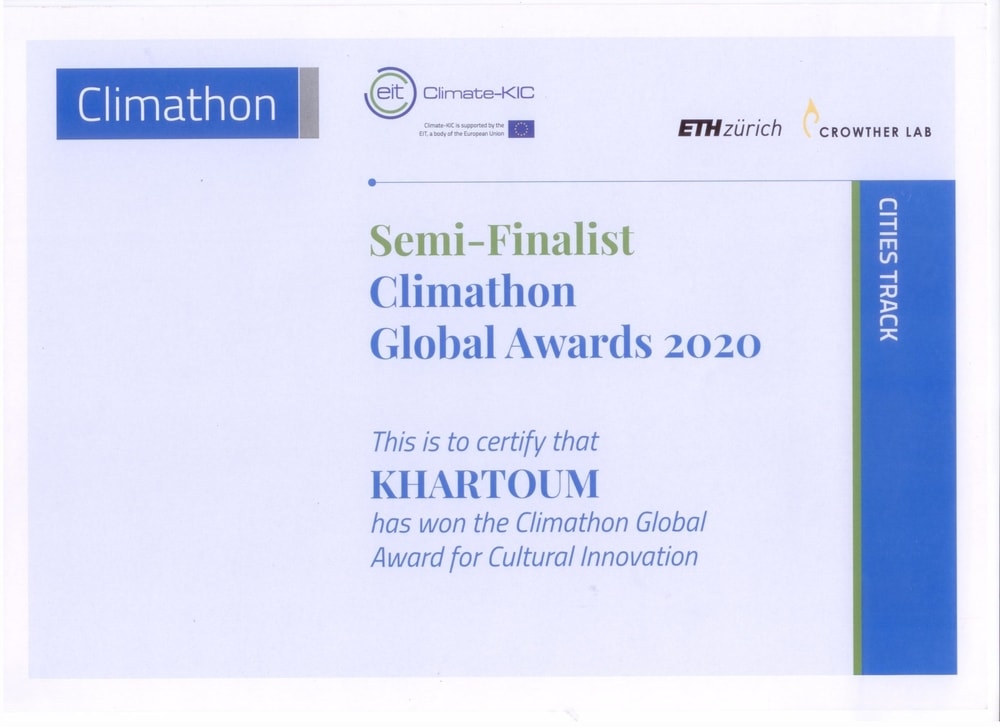
MNCEC has participated in the Global Climathon Award and represented Africa as a semi-finalist at the ChangeNOW Summit Paris, February 2020, with its project “Documentation and Sharing of Local Climate Knowledge”, which has been awarded the Global Climathon Award for Cultural Innovation.
In addition, MNCEC collaborated with Impact Hub Khartoum in organising Climathon Khartoum 2019 and Waste Management Hackathon. MNCEC celebrated World Environment Day 2020 by hosting a number of expert speakers in online sessions due to COVID-19 circumstances, discussed various environmental topics such as nature conservation, the impact of coronavirus on the environment and effects of mining on the environment and community in Sudan. All sessions had good resonance and views.
What do you think are the most pressing environmental challenges facing Sudan?
The challenges are global, not only at the local level. We share the world’s challenges in climate change. It is the world’s most pressing challenge. However, developing countries have been further vulnerable to the effects of climate change.
Sudan is facing many challenges such as desertification, land degradation and droughts, loss of biodiversity, poor solid waste management, and poor urban planning.
To overcome challenges, we need to concert effort between state and non-State actors, and raise citizen’s awareness about the environment.
For more information, visit MNCEC’s website www.nimir.center or find MNCEC on Facebook @MNCECSD.

